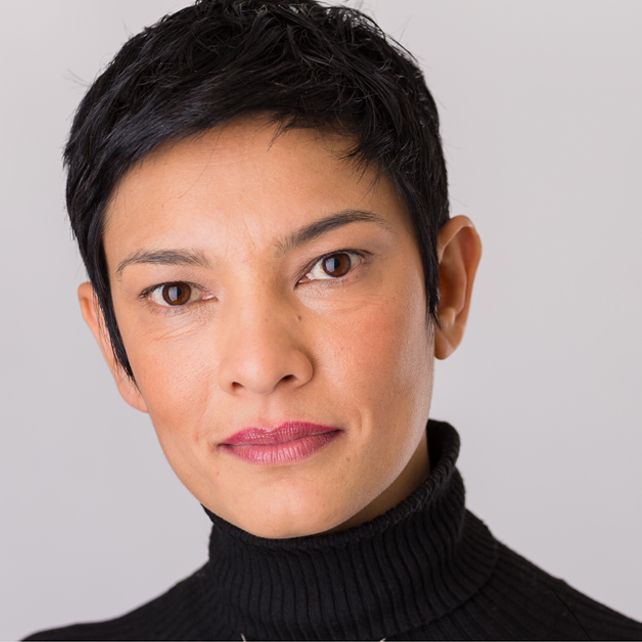
Tirana Hassan
ALUMNI AWARDS RECIPIENT
Tirana Hassan has always known she wanted to make a contribution to the world. And this drive to protect human rights and stand up to injustice has taken her to some of the most extraordinary and remote places in the world throughout her career.
From living in the Maluku Islands in Indonesia and the hot, dusty plains of Somalia, to the devastation and famine in Yemen, the crisis in Myanmar, and Sudanese refugee camps in Darfur; Tirana has truly seen humanity at its darkest.
As the Director of Crisis Response at Amnesty International, Tirana leads a team protecting human rights in crises by deploying to areas of conflict and fighting these injustices.
Their vital work makes the world pay attention to abuse in hopes of holding perpetrators to account, advocating with those in power who are able to bring about change, and elevating the voices of those that have important stories to tell.
Two years ago, when news of the crisis in Myanmar broke, Tirana and her Crisis Response team at Amnesty International were key in shining a light and bringing action to the atrocities committed by the Government.
However, nobody anticipated what they actually saw.
“We mobilised as Amnesty International, as the Crisis Response team, and deployed immediately to the border area,” she says.
“We were on the border witnessing tens of thousands of people stream across every day – holding children above their heads as they walked across the River Naf with whatever belongings they could grab before fleeing, as the military went in and burned down their homes.
“It was at that point that we needed to triangulate what was happening and more importantly, who was responsible.”
“These are the voices of people with incredible courage and dignity, and our job and what continues to drive me, is ensuring that those stories are told and those with the power to do something to stop abuses are compelled to do so.”
Born in Singapore and raised by her Pakistani father and Malaysian mother, Tirana credits her rich childhood spent travelling and living abroad in Indonesia and the US, instilling in her an inherent understanding of the diverse populations around the world.
“I think that that level of exposure, not just to other cultures, but diversity and disparity of societies, meant I understood there is inherent justice and injustice,” she says. “There are people that have, and there are people that don’t have.”
Tirana knew this contribution for her needed to be with direct engagement with people. Therefore, she instinctively moved into the field of social work with her degree at the University of South Australia.
Tirana describes her time at UniSA studying social work as a “tsunami of experiences”. Thankful for the practical application and experience of her degree, and the way it expanded her perception of everything from policy to service provision, she quickly settled in Early Intervention Youth Homelessness with the Adelaide Central Mission in the late nineties.
However, after constantly seeing the most vulnerable young people in South Australia falling through the gaps of a system meant to be protecting them, Tirana decided to pursue a law degree while still working at the Adelaide Central Mission to “understand those systems to be a better social worker.”
This experience – and her years spent as a social worker – led her to leading a number of programmes for Save The Children UK in Indonesia, Sudan, Sierra Leone, Liberia, and the Cote d’Ivoire in similarly dire high-risk conditions.
After spending a considerable time as a Child Protection and Humanitarian Emergencies specialist and senior researcher with both UNICEF and the Human Rights Watch, Tirana joined Amnesty International in 2015 as the Director of Crisis Response.
Tirana’s work in Myanmar and Bangladesh, highlighting the atrocities committed against the Rohingya people, is just one of the many humanitarian crises in which she has experienced the devastation first-hand with Amnesty International.
However, instead of despairing at the plight of humanity, she walks away from each of those experiences – particularly the individuals who have survived conflict and crisis – somewhat changed and driven with the responsibility to do something with the information.
“These are the voices of people with incredible courage and dignity, and our job and what continues to drive me, is ensuring that those stories are told and those with the power to do something to stop abuses are compelled to do so.”
“Some of the most profound human rights heroes I’ve ever come across are individuals who just saw something that was wrong, and stood up, and did something about it.
“Whether that’s what you do if you see domestic violence or what you do when you see a potential genocide unfolding, it is what you choose to do in the moments that defines us, and ultimately defines history.
“It takes the same sort of courage and everybody has it in them.”


